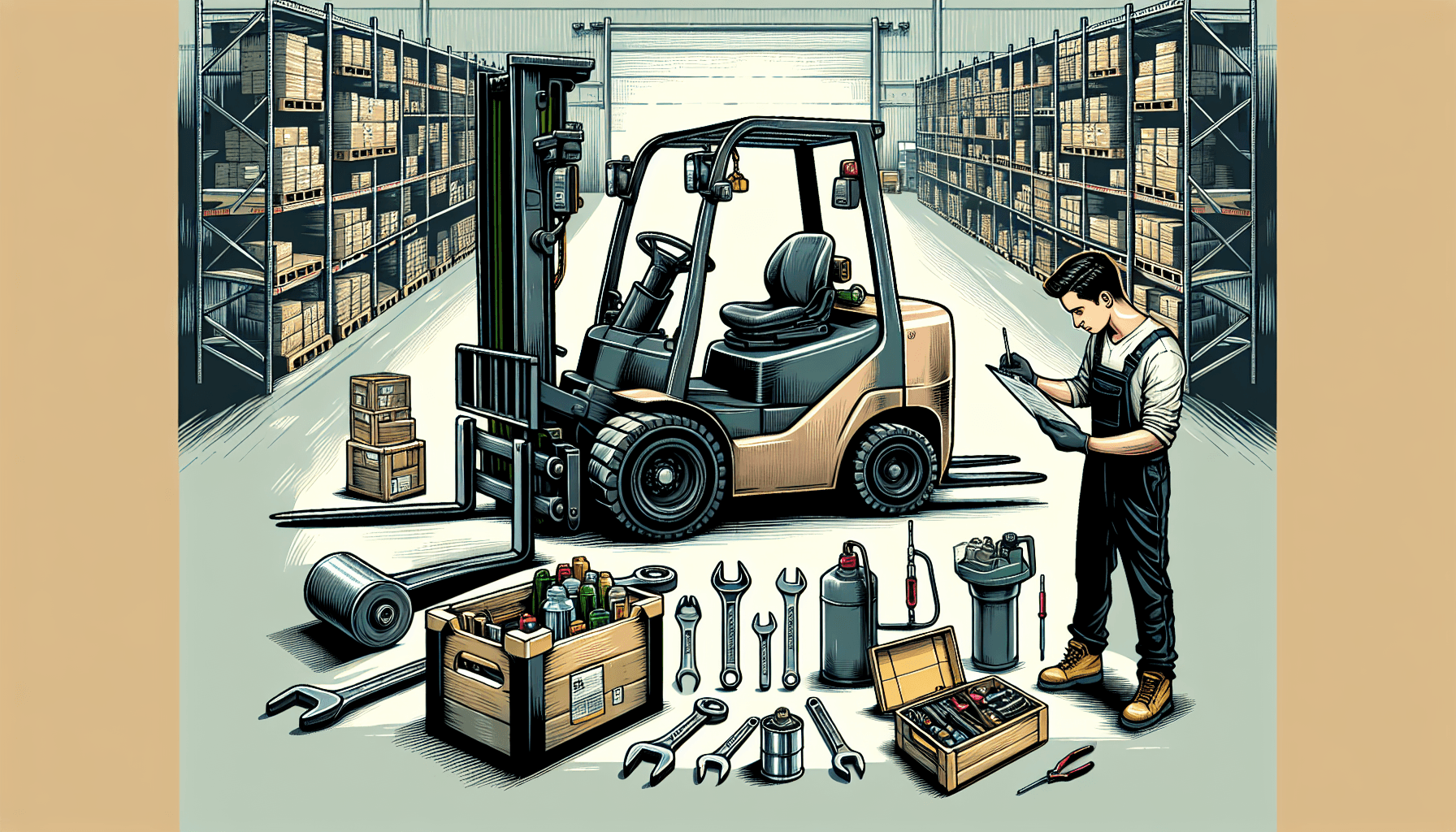When a forklift breaks down mid-shift, the entire floor feels it. Orders stall, workflows back up, and deadlines get tight. And most of the time? That breakdown didn’t come out of nowhere—it came from skipped maintenance, ignored signs, and worn parts left unchecked.
Forklifts are tough machines, but they’re not invincible. Regular upkeep keeps them running strong and prevents the kind of failures that cost more than just repair dollars—they cost time, safety, and productivity.
Why Maintenance Isn’t Optional
- Safety first: Faulty brakes, dim lights, worn tires—those aren’t minor issues. They’re accidents waiting to happen. Regular maintenance keeps critical systems in check.
- Performance matters: A well-maintained lift runs smoother, responds better, and handles heavier loads without hesitation. It’s not just safer—it’s more productive.
- Downtime hurts: Every unexpected breakdown means lost hours. Preventive maintenance catches problems early, before they halt your operation.
- Longer lifespan: Skip maintenance and you’ll be shopping for a new forklift sooner than you planned. Take care of your equipment and it’ll take care of your bottom line.
- Lower costs overall: It’s cheaper to tighten a belt than to replace an engine. Early fixes beat emergency calls every time.
Build a Real Maintenance Schedule
Don’t rely on memory or “when it looks bad.” Set a routine. Daily pre-shift checks. Weekly inspections. Monthly service intervals. Oil changes, filter swaps, brake checks, all on a timeline that matches usage.
If you don’t have the internal bandwidth, partner with someone who does. HCO Innovations offers turnkey forklift maintenance programs that take the burden off your team—and keep your fleet in top form.
Inspections: The Frontline of Prevention
Daily walkarounds matter. Tires, forks, mast, fluid leaks—if something looks off, it probably is. Don’t let small problems slide. They grow fast.
And don’t skip safety features: horns, lights, seatbelts, alarms. These aren’t accessories—they’re essential tools for keeping the floor safe.
Fluids Are the Lifeblood
Low fluids equal high risk. Check engine oil, coolant, brake fluid, and hydraulics regularly. Top them off. Change them on schedule. Watch for leaks and address them immediately. A fluid leak today is a breakdown tomorrow.
Electric Fleet? Watch the Batteries
Batteries don’t fail overnight. They fade. Weak charges, short cycles, corroded terminals—these are warning signs. Keep batteries clean. Use the right charging protocols. Don’t let them drain to zero. And rotate usage to prevent uneven wear.
A battery maintenance program isn’t a nice-to-have. It’s the key to consistent uptime in electric fleets.
Train the Operators—They’re Your First Line of Defense
No one knows a forklift better than the person using it every day. Train your team to spot early warning signs. Unusual noises. Sluggish performance. Leaks. Jerky lifts. Encourage reporting. The faster an issue gets flagged, the cheaper and easier it is to fix.
And make sure they know how to operate the machines properly. Poor handling leads to avoidable stress on components—and more breakdowns over time.
Make Maintenance a Culture, Not a Chore
The best-run warehouses treat maintenance like any other critical system. It’s planned, documented, and done on schedule. Forklifts don’t get skipped. Checks don’t get rushed. And problems don’t get ignored.
If your current plan relies on “we’ll get to it,” it’s time for an upgrade. HCO Innovations can help you build a schedule, train your team, and manage it all so nothing falls through the cracks.
Bottom line? A healthy forklift fleet means smoother shifts, safer floors, and fewer surprises. And in a warehouse, fewer surprises is exactly what you want.

